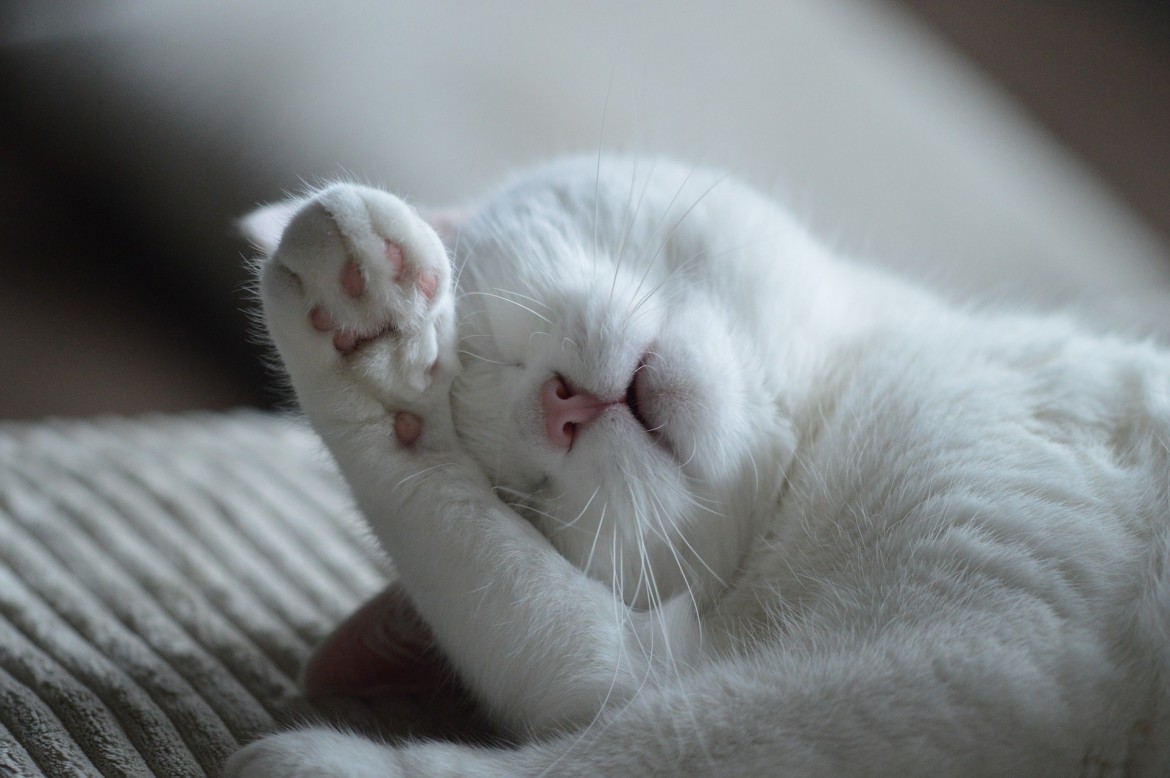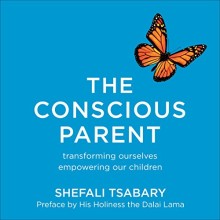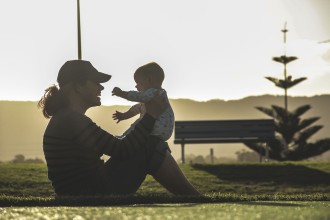Why do babies nap?
07 Jul, 2019Babies get tired during the day a lot more than adults do. Imagine if your brain was growing that much and developing as fast - you’d probably get tired too! Babies use their nap time to process memories and go over what they have learnt while awake to strengthen these connections in their brain and move information from their short term storage to the long term storage in their brain. Its similar to what happens when we were Uni students studying during the day and we had a nap in the afternoon and woke up refreshed to learn more. Our handy brains had moved what we learnt from short term to long term storage making more room for learning again. But babies are learning so much life skills and information that they need this sleep more than we will ever need it and can benefit heaps from as much as a 30 minute nap! Research has shown that even a 30 minute nap in a 4 hour period will help a 6 month - 12 month baby retain long term memories in a 4- 24 hour period.
Babies also have a hard time differentiating between day and night. In their mum’s tummies they followed mum’s circadian rhythm. After they are born, they have not yet developed their own circadian rhythm so sleep as much during the day as they would at night. Over time they will develop their own rhythm and sleep more at nght and less during the day.
Being a baby is pretty stressful - you’re body and mind is developing, the outside world is so different to your nice cosy womb home for 9 months, and then suddenly you’re aware that mummy can leave you and you have no idea when she’s coming back. Imagine the anxiety! Naps are a great way to recover and secrete more cortisol to help them deal with these stresses.
What if my baby sleeps so much during the day they dont sleep at night?
I think this is a common fear that a lot of parents have. They imagine that if their baby sleeps more during the day, they won’t sleep at night and keep waking up needing parental help to go back to sleep. And research has shown that this happens with toddlers who have daytime naps - they have poorer sleep quality and less sleep at night. “The most consistent finding was an association between napping and later onset, shorter duration and poorer quality of night sleep, with evidence strongest beyond the age of 2 years.”
But with babies - no need to worry. Using parent led routines is only going to make your child overtired and stressed during the day, making it harder for them to sleep at night. The best napping routine to follow is a baby-led routine - let your baby sleep when they are tired and stay awake when they are not and it’s more likely that they will naturally be ready to sleep well at night.
Babywearing for naps
In ancient times, babies would sleep tied to their mothers chest whilst they worked in the fields or went about their daily activities. While babywearing has come back into fashion in western society, it is also an evolutionary development and a biological benefit. Babywearing keeps your baby snug against your chest where they feel body warmth and are subconsciously aware that their needs will be met. They can smell mums milk and know that if they are hungry they will be fed. Like in the womb, mums activity during the day helps them follow her circadian rhythm.
Research shows that babies who are carried and worn in a carrier or sling during the day will be much calmer and cry less than those that aren’t. It’s a no brainer that a calm baby will go to sleep more easily and stay asleep than one that is crying. “In a randomized controlled trial, 99 mother-infant pairs were assigned to an increased carrying or control group. At the time of peak crying (6 weeks of age), infants who received supplemental carrying cried and fussed 43% less (1.23 v 2.16 h/d) overall, and 51% less (0.63 v 1.28 hours) during the evening hours (4 PM to midnight).”
Over time the baby will need their mum to be around less and not crave being carried as much. This will happen naturally. There is no point in denying them these needs until they are biologically developed enough to not need it.
When baby naps mum naps
The best time for a mum to rest is when their baby is resting. This has so many benefits!
Mums can recharge and rest to get back their energy
More bonding time with baby close to them
Babies feel more secure with mum physically close and so get a longer nap
Reduces the risk of SIDS (75% of Daytime SIDS occurred when baby was sleeping alone in a different room).
What happens if my baby stops napping?
There are no real evidence based guidelines on how much your baby should nap for at each age, each child is different and some will need more naps and longer naps and others won’t. Let your baby tell you what it needs.
At some point though, babies will start to increase their night time sleep and need a day time nap less as their brains develop and circadian rhythms mature. This is normal. It tends to stress parents out as a rushed parent might use that day time nap time to get things done at home or have an hour or two to themselves for adult time. But forcing your baby to sleep in the afternoon will only impact their night time sleep - follow your babies lead and as they start maturing, their sleep will start to look more like adults.
Studies show that “The most prominent decline in napping habits occurred between 1.5 years of age (96.4% of all children) and 4 years of age (35.4%).”
How does light affect naps and sleep at night?
The best environment for babies to nap is with natural light. As they are developing their circadian rhythms, any use of artificial light or blocking out light during the day with block out blinds or sleep shades for prams etc will only confuse them as their body is finally getting used to secreting cortisol during the day and melatonin at night.
Research shows that if you try to hide them from light during the daytime, this has a negative effect on their circadian rhythm. So exposing them to more light during the day will help them develop their circadian rhythm, and go to sleep easier at night.
Research
Why your baby’s sleep matters - Sarah Ockwell Smith
Why we sleep - Matthew Walker
Timely sleep facilitates declarative memory consolidation in infants - https://www.pnas.org/content/112/5/1625
Circadian phase and its relationship to nighttime sleep in toddlers - https://www.ncbi.nlm.nih.gov/pubmed/24132058
Sleep duration from infancy to adolescence: reference values and generational trends - https://www.ncbi.nlm.nih.gov/pubmed/12563055
Napping, development and health from 0 - 5 years: a systematic review - https://adc.bmj.com/content/100/7/615
Increased carrying reduces infant crying: a randomized controlled trial - https://www.ncbi.nlm.nih.gov/pubmed/3517799
Sudden Infant death syndrome and the time of death https://www.ncbi.nlm.nih.gov/pubmed/17148463
Acute exposure to evening blue enriched light impacts on human sleep https://www.ncbi.nlm.nih.gov/pubmed/23509952
Nocturnal light pollution and under exposure to daytime sunlight: Complementary mechanisms of circadian disruption and related diseases https://www.ncbi.nlm.nih.gov/pubmed/26374931
Light is beneficial for infant circadian entrainment: an actigraphic study https://www.ncbi.nlm.nih.gov/pubmed/22043963
Cover Image by Shannon from Pixabay
Get The Best Of Sleepy Roo Delivered To Your Inbox
Subscribe to my newsletter and get the latest info on baby sleep! You can unsubscribe at any time.



